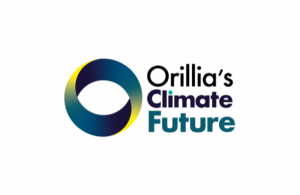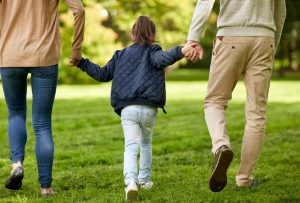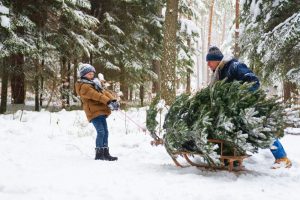The holiday season is traditionally a time for consumers to “buy, buy, buy.” This year, however, is a wonderful opportunity to re-think not only how we will celebrate the season, but also how we can each do our part in the transition to a net-zero lifestyle and economy. Two things—one local and one international—suggest now is the time for re-evaluating the way each of us lives.
The local nudge is Orillia’s Climate Future—the city of Orillia’s climate action plan, adopted by the City in 2022 and now in the process of implementation. The goals set therein start as early as 2025, with major targets set to be accomplished by 2040. The document describes a pathway to “transform the energy system.”
 The report notes: “A low-carbon Orillia is a better city. Homes that are properly insulated and use heat pumps for heating and cooling are more comfortable and more affordable to run. Swapping gas- and diesel-powered vehicles for electric vehicles reduces air pollution, which results in less asthma in children and less COPD and other chronic diseases in the elderly. Additionally, increased walking, biking, and transit improves fitness, increases social interactions, and results in a more vibrant community” (p 15).
The report notes: “A low-carbon Orillia is a better city. Homes that are properly insulated and use heat pumps for heating and cooling are more comfortable and more affordable to run. Swapping gas- and diesel-powered vehicles for electric vehicles reduces air pollution, which results in less asthma in children and less COPD and other chronic diseases in the elderly. Additionally, increased walking, biking, and transit improves fitness, increases social interactions, and results in a more vibrant community” (p 15).
Our city’s goals should be OUR goals, as it will take community effort to reach the set targets.
The second thing that should motivate us is COP 28, the 2023 UN Climate Change Conference that will convene from 30 November to 12 December 2023 in Dubai, United Arab Emirates.
COP 28 will focus on four paradigm shifts:
• Fast-tracking the energy transition and slashing emissions before 2030;
• Transforming climate finance, by delivering on old promises and setting the framework for a new deal on finance;
• Putting nature, people, lives, and livelihoods at the heart of climate action; and
• Mobilizing for the most inclusive COP ever.
Note the first of these. “Fast-tracking the energy transition” means being more aggressive and doing more—more and faster—in order to slash emissions. What Canada and other nations are now doing is not enough.
There is an urgency to this climate conference. For the past eight years, since 2015’s Paris Agreement, the world community has agreed that “To prevent worsening and potentially irreversible effects of climate change, the world’s average temperature should not exceed that of preindustrial times by more than 1.5 degrees Celsius (2.7 degrees Fahrenheit).”
It appears, however, that the lack of action to date by national and state or provincial governments—including Canada’s—means a much higher rise in temperature is likely. As the online Climate Tracker notes, “Current policies presently in place around the world are projected to result in about 2.7°C[1] warming above pre-industrial levels. [Promised actions by nations] will limit warming to 2.4°C. When binding long-term or net-zero targets are included warming would be limited to about 2.0°C[3] above pre-industrial levels.”
While this increase from 1.5 degrees to 2 degrees does not sound alarming, the increase will mean wilder weather in future: more torrential storms, stronger hurricanes, more tornadoes, more droughts and wildfires, and conversely, more widespread flooding—not to mention the rise of seas that will endanger coastline communities worldwide. In other words, more destruction. More impact on people everywhere—including right here in Orillia.
Sustainable Orillia is therefore suggesting that in 2023 the best Christmas present we can give each other—and the future—is a commitment to making the changes needed to reduce greenhouse gas emissions—a commitment, in other words, to keeping the world as safe as we can for those who will be living in 2100 and beyond—our children and their grandchildren.
This “gift to the future” will involve sitting down as a family or a group of friends and discussing the many changes we need to make: electrifying our homes and our economy,  reducing our energy use by preventing heat loss from our buildings, choosing our foods more carefully and using them less wastefully, choosing transit or active transportation as much as possible—in short, adapting to a lifestyle that will reduce our carbon emissions every day going forward. In these discussions, start planning your next step. Set a timeline. Involve family and friends.
reducing our energy use by preventing heat loss from our buildings, choosing our foods more carefully and using them less wastefully, choosing transit or active transportation as much as possible—in short, adapting to a lifestyle that will reduce our carbon emissions every day going forward. In these discussions, start planning your next step. Set a timeline. Involve family and friends.
Those family meetings and gatherings of friends also must include a decision to speak up, to demand our political leaders show that they understand that Christmas of 2023 is the time for us all to give the best Christmas present ever—a commitment to the people of the future. Further delay cannot be an option—not anymore. Together, by raising our voices, we can ensure that this Christmas message is loud and clear.
And when in our past have we had the opportunity to give a present to eight billion people—those now alive and those that will be living in the year 2100? It’s no cliché this time. This WILL be the gift that “keeps on giving.”

Merry Christmas. Happy Hanukkah. A joyful Kwanzaa. However you choose to celebrate the season, enjoy the festive holiday season this December. May you this year give “the best gift ever.”

